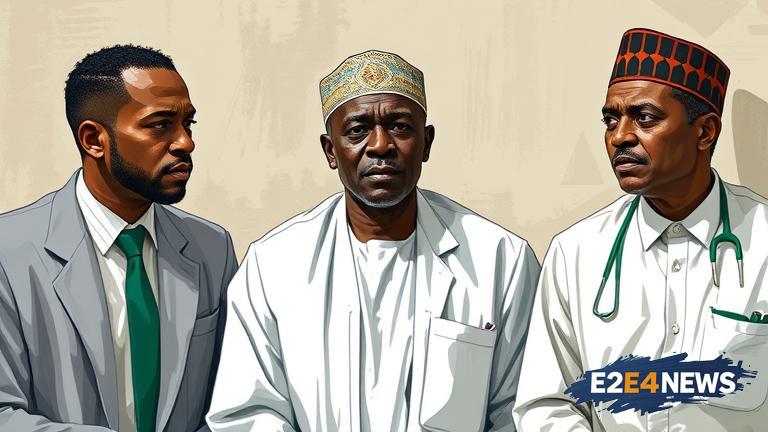Nigeria has been grappling with the issue of corruption for decades, with high-profile cases often making headlines. However, the country’s justice system has been criticized for its slow pace in prosecuting these cases. Many corruption trials have been ongoing for years, with some stretching on for over a decade. This has led to frustration among Nigerians, who are eager to see justice served. The slow pace of these trials has been attributed to various factors, including a lack of resources, inadequate investigation, and a backlog of cases. Furthermore, the frequent changes in government and the judiciary have also contributed to the delays. In some cases, judges have been reassigned or retired, leading to a restart of the trial process. The prosecution has also been criticized for its lack of preparedness, with cases often being adjourned due to the absence of key witnesses or evidence. The defense, on the other hand, has been accused of using delay tactics to frustrate the prosecution. The impact of these delays is not only felt by the accused but also by the victims of corruption, who are often left without justice or compensation. The Nigerian government has been under pressure to reform the justice system and ensure that corruption cases are prosecuted efficiently. In recent years, there have been efforts to introduce reforms, including the establishment of special courts to handle corruption cases. However, these efforts have been met with skepticism, with many arguing that more needs to be done to address the root causes of the problem. The international community has also been watching Nigeria’s corruption trials with interest, with some countries imposing sanctions on individuals and companies implicated in corruption. The Nigerian economy has also suffered as a result of corruption, with billions of dollars lost to graft and mismanagement. The country’s anti-corruption agency, the Economic and Financial Crimes Commission (EFCC), has been at the forefront of the fight against corruption. However, the agency has faced challenges, including a lack of funding and personnel. Despite these challenges, the EFCC has secured some high-profile convictions, including that of a former governor who was jailed for corruption. The conviction was seen as a major victory for the agency and a testament to its commitment to fighting corruption. However, more needs to be done to ensure that corruption cases are prosecuted efficiently and that justice is served. The Nigerian government must prioritize the reform of the justice system and provide adequate resources to the EFCC and other anti-corruption agencies. Additionally, the government must ensure that the rule of law is upheld and that the rights of all citizens are protected. The fight against corruption is a long-term one, and it will require the collective efforts of all Nigerians. By working together, Nigeria can overcome the challenges posed by corruption and build a more just and equitable society. The country’s future depends on it, and the time to act is now. The Nigerian people are eager to see justice served, and they will be watching the corruption trials closely. The government must be transparent and accountable in its handling of these cases, and it must ensure that the justice system is fair and impartial. Only then can Nigeria hope to overcome the scourge of corruption and achieve its full potential.
